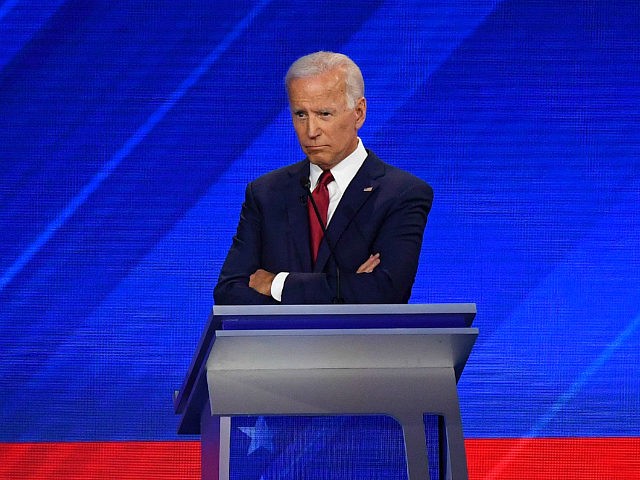One of former Vice President Joe Biden’s top donors slammed Sens. Elizabeth Warren (D-MA) and Bernie Sanders (D-VT) on Thursday, saying they do not “represent the Democratic Party.”
Neil Bluhm, a billionaire casino magnate and former Obama bundler, made the comment during a ritzy fundraiser hosted on Biden’s behalf at his Chicago, Illinois home. The former vice president did not correct Bluhm, according to The Chicago Sun Times, choosing instead to deliver a standard stump speech about Americans needing to be more optimistic.
Shortly after Bluhm’s comments broke on social media, the Sanders campaign responded by rebuking the billionaire donor and, in effect, Biden as well.
“Mr. Bluhm is right — the Democratic Party I represent is the party of the working class, not billionaires. That’s why we’re going to win,” the Sanders campaign said in a statement.
Bluhm’s criticism and the response it triggered underscores the internal divisions plaguing the Democratic Party ahead of the 2020 presidential election. Biden, despite having one of the most left-wing platforms of any Democrat frontrunner, is considered a moderate in comparison to the rest of the field. The image stems from the triangulation Biden has done over the span of his more than 40-year political career, especially on issues important to progressives like race, financial deregulation, and criminal justice.
The former vice president has also done little to appease the increasingly powerful left-wing of his party by aligning himself with the establishment in opposition to radical proposals like Medicare for All. Even Biden’s attempts to find common ground with progressives on climate change — by calling for an outright ban on coal — has been met with derision for not going far enough.
Sanders and Warren, on the other hand, are seen as progressive firebrands pushing the Democratic Party away from the Neoliberal policies of Presidents Bill Clinton and Barack Obama and towards the more centralized economies of Northern Europe. Along those lines, Warren and Sanders have championed a series of policies — ranging from free higher education, increased Wall Street regulation, and higher taxes on the wealthy, among others — to remake the American economy.
The divergence between the former vice president and Sanders and Warren has been no clearer than on the issue of Medicare for All. Biden has consistently attacked the universal healthcare plan, which is authored by Sanders, as overly ambitious and impossible to implement. The former vice president, who is trumpeting his own healthcare proposal centered on strengthening Obamacare and providing a public health insurance option, has also lambasted the proposal’s backers for not being upfront about its costs and consequences.
“Bernie’s been very honest about it. He said you’re going to have to raise taxes on the middle class. He said it’s going to end all private insurance. I mean, he’s been straightforward about it. And he’s making his case,” Biden told CNN in July, adding other Democrats have not been as transparent.
Sanders, Warren, and their allies have responded to such criticisms by accusing Biden of parroting Republican talking points on Medicare for All.
“The charge that he’s making is exactly what the Republicans are saying,” Sanders told the New York Times in July while excoriating Biden for siding with “insurance companies and the pharmaceutical industries” on the issue.
Many, however, have noted that the battle for Medicare for All is really just a proxy battle between the establishment, which is averse to change, and the grassroots. Biden, himself, seemed to hint at this when he promised at a June fundraiser that “nothing would fundamentally change” if he was elected president.

COMMENTS
Please let us know if you're having issues with commenting.